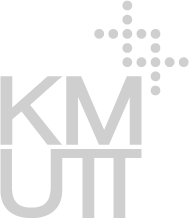ผู้ช่วยศาสตราจารย์ ดร.
ชื่อ : อธิปัตย์ บุญเหมาะ
ตำแหน่ง : อาจารย์
หน่วยงาน : สายวิชาภาษา
ประวัติการศึกษา
| ปีที่สำเร็จ | ปริญญา | สถาบัน |
| 2552 | เอก (สาขาการสอนภาษาอังกฤษ) | University of Warwick, สหราชอาณาจักร |
| 2547 | โท (สาขาภาษาศาสตร์ประยุกต์) | มหาวิทยาลัยเทคโนโลยีพระจอมเกล้าธนบุรี |
| 2546 | ตรี (สาขาทฤษฏีและเทคนิคทางรัฐศาสตร์) | มหาวิทยาลัยสุโขทัยธรรมาธิราช |
| 2545 | ตรี (สาขาภาษาอักฤษและการสื่อสาร) | มหาวิทยาลัยอุบลราชธานี |
ภาระงาน
-
-
- Fundamental English I, II, & III
- Oral Communications I
- In-sessional English Course for Post Graduate Students
- MA Research Methods
- MA EPIC programme coordinator
- Supervision of MA research students, currently working in the area of autonomy
-
สาขาวิจัย Dictionary use, lexicography, autonomy, new technologies and language learning
รางวัลที่ได้รับ Outstanding student award (Marcos de Niza High School, Arizoana, USA)
งานบริการวิชาการ
เป็นวิทยากร โครงการอบรมเชิงปฎิบัติการครูภาษาอังกฤษ (Teaching Knowledge Test – Module 2 and Module 3) โดยศูนย์พัฒนาการเรียนการสอนภาษาอังกฤษ (ERIC) จังหวัดระนอง สังกัดสำนักงานเขตพื้นที่การศึกษาจังหวัดระนอง วันที่ 11 – 12 กรกฏาคม 2552 ณ โรงแรมทินิดี จังหวัดระนอง
เป็นวิทยากรอบรม เรื่อง “ใช้พจนานุกรมแบบไหนดี” 1st International Conference on Learning & Teaching Active Learning และ EDUCA 2009 วันที่ 16 ตุลาคม 2552
เป็นวิทยากรอบรม เรื่อง “Pocket electronic dictionaries: recommendations for Thai users”
1st International Conference on Learning & Teaching Active Learning และ EDUCA 2009 วันที่ 16 ตุลาคม 2552
เป็นวิทยากร บรรยายหัวข้อ การจัดกิจกรรมการเรียนการสอนภาษาอังกฤษ และ การใช้สือการเรียนการสอนภาษาอังกฤษ งานสัมมนาการจัดกิจกรรมการเรียนการสอนภาษาอังกฤษเพื่ออาชีวศึกษายุคใหม่ โดยสำนักงานพัฒนาสมรรถนะครูและบุคลากรอาชีวศึกษา วันที่ 24 มีนาคม 2553 และวันที่ 27 เมษายน 2553
คณะผู้แปล คู่มือครูและแผนการจัดการเรียนรู้ Let’s Go 5 ชั้นประถมศึกษาปีที่ 5 Let’s Go: Level 5, Third Edition, Oxford University Press
งานตีพิมพ์
วารสาร
- นภัสวรรณ กาญจนบูรณ์, วรีสิริ สิงหศิริ และ อธิปัตย์ บุญเหมาะ, Factors Affecting Listening Comprehension through Watching the American Sitcom ‘Friends’, วารสารศิลปศาสตร์ประยุกต์, ปีที่ 5, ฉบับที่ 1, มกราคม – มิถุนายน 2555, หน้า 66 – 79.
- ชุติมา บุญปริตร, ภมรารัตน์ วิริยะการุณย์ และ อธิปัตย์ บุญเหมาะ, การศึกษาการใช้กลวิธีการอ่านของผู้เรียนภาษาอังกฤษเพื่อวัตถุประสงค์ทางวิชาการที่มีระดับความสามารถทางภาษาอังกฤษต่ำในการอ่านบทความวิจัย, วารสารสุโขทัยธรรมาธิราช, ปีที่ 25, ฉบับที่ 1, มกราคม – มิถุนายน 2555, หน้า 139 – 153.
- วรีสิริ สิงหศิริ และ อธิปัตย์ บุญเหมาะ, Training EFL Teacher Trainees through Reflective Learning, rEFLections, ปีที่ 14, กุมภาพันธ์ 2554, หน้า 30 – 46.
- Boonmoh, A. (forthcoming 2011) “E-dictionary use under spotlight”. In S. Granger and M. Paquot (eds) Electronic Lexicography. Oxford, Oxford University Press.
- Boonmoh, A., The Use of Pocket Electronic Dictionaries by Thai University Students, Lexikos Journal, Vol. 20, 2010, pp. 680 – 690.
- Boonmoh, A., Teachers’ Use and Knowledge of Electronic Dictionaries, Teachers’ Use and Knowledge of Electronic Dictionaries, ABAC Journal, Vol. 30, No. 3, September – December 2010, pp. 56 – 74.
- Nesi, H. and Boonmoh, A., (2009) A close look at the use of pocket electronic dictionaries for receptive and productive purposes, In T. Fitzpatrick and A. Barfield (eds) Lexical Processing in Second Language Learners, Clevedon, UK: Multilingual Matters.
- Boonmoh, A. and Nesi, H., (2008) A Survey of Dictionary use by Thai University Staff and Students, with Special Reference to Pocket Electronic Dictionaries, Horizontes de Lingüística Aplicada, Vol. 6, No. 2, pp. 79 – 90.
- Boonmoh, A. (2005) Getting ready to teach in a large class: a diary study, Guidelines, 27 (2).
- Boonmoh, A., Hull, J. and Singhasiri, W., (2004) Using electronic dictionaries for essay writing, Guidelines, 26 (2).
- Boonmoh, A., Singhasiri, W. and Hull, J., (2005) Problems using electronic dictionaries to translate Thai written essays into English, rEFLections, 8: 8 – 18
Proceedings ในการประชุม
- Tangamornsuksa, A. and Boonmoh, A., Note Taking Strategies Used by Post Graduate Students at King Mongkut’s University Technology Thonburi (KMUTT), Proceedings การประชุมวิชาการระดับชาติทางศิลปศาสตร์ประยุกต์ ครั้งที่ 5 (NCAA2015), สถาบันเทคโนโลยีพระจอมเกล้าเจ้าคุณทหารลาดกระบัง, กรุงเทพฯ, 4 มิถุนายน 2558, หน้า 8 – 15.
- Inpanich, P. and Boonmoh, A., The Effects of Peer and Teacher Feedback through an Electronic Medium (Facebook) on Students’ Writing at Different Points of Their Writing, Proceedings of the 1st International Conference on Language, Literature, and Cultural Studies (ICLLCS 2013), A-ONE The Royal Cruise Hotel, Pattaya, Chonburi, 22 – 24 August 2013, pp. 259 – 269.
- Boonmoh, A., Incorporating the Use of Facebook into the EFL Classroom, Proceedings of the European Conference on Technology in the Classroom (ECTC 2013) “The Impact of Innovation: Technology and You”, 11 – 14 July 2013, Brighton Thistle Hotel, Brighton, United Kingdom, pp. 234 – 242.
- Gnampradit, K. and Boonmoh, A., An Analysis of Translation Strategies Used in the English Subtitles of the Thai Movie ‘Hello Stranger’, 2013. Proceedings of the 4th International Conference on Language and Communication: Current Issues and Future Directions in Media, Communication and Language (ICLC 2012), National Institute of Development Administration (NIDA), Bangkok, Thailand (13 – 14 December 2012), p. 202 – 229.
- Asawaniwed, P. and Boonmoh, A., Attitudes of Thai EFL Learners toward the Use of Blogs, Proceedings of the 4th TCU International e-Learning Conference “Smart Innovations in Education & Lifelong Learning”, 14 – 15 June 2012, IMPACT, Muang Thong Thani, Nonthaburi, pp. 313 – 319.
- Boonmoh, A., FACEBOOK: What Students did and what they would like to do, Proceedings of the 2nd Asian Conference on Technology in the Classroom 2012: Learning, Culture and Society: What role can technology play?, Osaka, Japan, 24 – 26 April 2012, pp. 10 – 23.
- Boonmoh, A., Students knowledge of pocket electronic dictionaries: Recommendations for the students, Proceedings of the 7th International Conference Second Circular: “LEXICOGRAPHY: Theoretical and Practical Perspectives”, Kyoto, Japan, 22 – 24 August 2011, pp. 66 – 75.
- Boonmoh, A., Using Blogs to Motivate Students to Write, Proceedings of the CULI’s 7th International Conference 2010 “Pathways in EIL: Explorations and Innovations in Teaching and Research”, Bangkok, 1 – 3 December 2010, pp. 1 – 9.
การเสนอผลงาน
- Tangamornsuksa, A. and Boonmoh, A., Note Taking Strategies Used by Post Graduate Students at King Mongkut’s University Technology Thonburi (KMUTT), การประชุมวิชาการระดับชาติทางศิลปศาสตร์ประยุกต์ ครั้งที่ 5 (NCAA2015), สถาบันเทคโนโลยีพระจอมเกล้าเจ้าคุณทหารลาดกระบัง, กรุงเทพฯ, 4 มิถุนายน 2558.
- Boonmoh, A., Incorporating Facebook into the EFL Classroom, The European Conference on Technology in the Classroom (ECTC 2013) “The Impact of Innovation: Technology and You”, 11 – 14 July 2013, Brighton Thistle Hotel, Brighton, United Kingdom, p. 4.
- Boonmoh, A., FACEBOOK: What Students did and what they would like to do, The 2nd Asian Conference on Technology in the Classroom 2012: Learning, Culture and Society: What role can technology play?, 24 – 26 April 2012, Osaka, Japan, p. 11.
- Boonmoh, A., Students knowledge of pocket electronic dictionaries: Recommendations for the students, The 7th International Conference Second Circular: “LEXICOGRAPHY: Theoretical and Practical Perspectives”, Kyoto, Japan, 22 – 24 August 2011, p. 4.
- Boonmoh, A., (2010) Using blogs to motivate students to write. CULI 7th International Conference, 1 – 3 December, Bangkok.
- Singhasiri, W. and Boonmoh, A., (2010) Training EFL Novice Teachers through Reflective Learning, CULI 7th International Conference, 1 - 3 December, Bangkok.
- Boonmoh, A., (2009) Teachers’ use and knowledge of electronic dictionaries, Asialex 2009: Dictionaries in Education, 20 – 22 August, Bangkok.
- Singhasiri, W. and Boonmoh, A. (2009) The use of dictionaries of low proficiency students in a naturalistic setting. Asialex 2009: Dictionaries in Education. August 20-22, Bangkok.
- Boonmoh, A., 2008, “Methods for Researching Pocket Electronic Dictionary use: A Study of PED Consultation of Thai University Students “, The 3rd Newcastle Postgraduate Conference in Theoretical and Applied Linguistics, July 9, Newcastle University, United Kingdom.
- Boonmoh, A., 2008, “A Close Look at the Use of Pocket Electronic Dictionaries: Research Methodological Considerations“, The 11th Warwick Postgraduate Conference in Applied Linguistics 2008, June 18, The Centre for Applied Linguistics, University of Warwick, United Kingdom.
- Boonmoh, A., 2008, “Teachers! Is it the Time to Teach [P]ocket [E]lectronic [D]ictionary Skills?“, Cutting Edges 2008: Identity in the Classroom, June 20-21, Canterbury Christ Church University, United Kingdom.
- Boonmoh, A., 2008, “[P]ocket [E]lectronic [D]ictionaries: Recommendations for Users in Thailand“, The 1st Samaggi Academic Conference 2008, February 16-17, Imperial College, United Kingdom.
- Boonmoh, A., 2006, “Investigating the use of pocket electronic dictionaries for reception and production’ Research Students“, The 9th Annual Summer Conference Programme ‘Issues in Education Research’, June 14, Centre for English Language Teacher Education, University of Warwick, United Kingdom.
- Boonmoh, A., 2005, “A Diary Study of a Teacher’s Attitudes Towards Teaching in a Large Class“, The 25th Annual Thailand Tesol International Conference “Surfing the Wave of Change in ELT” Conference Summaries. January 20-22, Bangkok.
ติดต่อ 02 470 8754
อีเมล์ atipat.boo@kmutt.ac.th
เวปไซต์ส่วนตัว http://www.atipat.co.uk/
http://www.kmutt.ac.th/rippc/lagart14.htm




